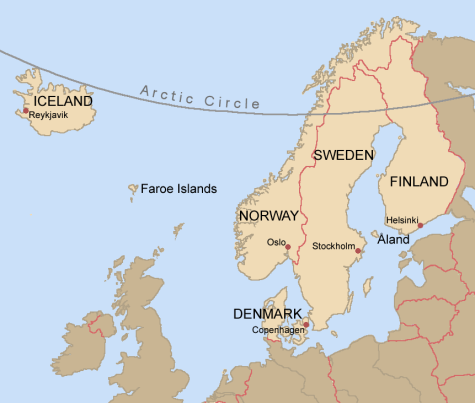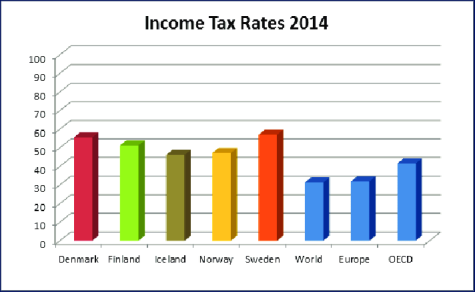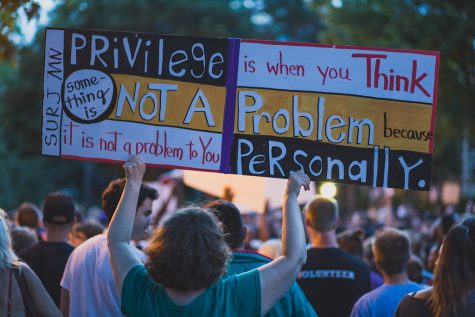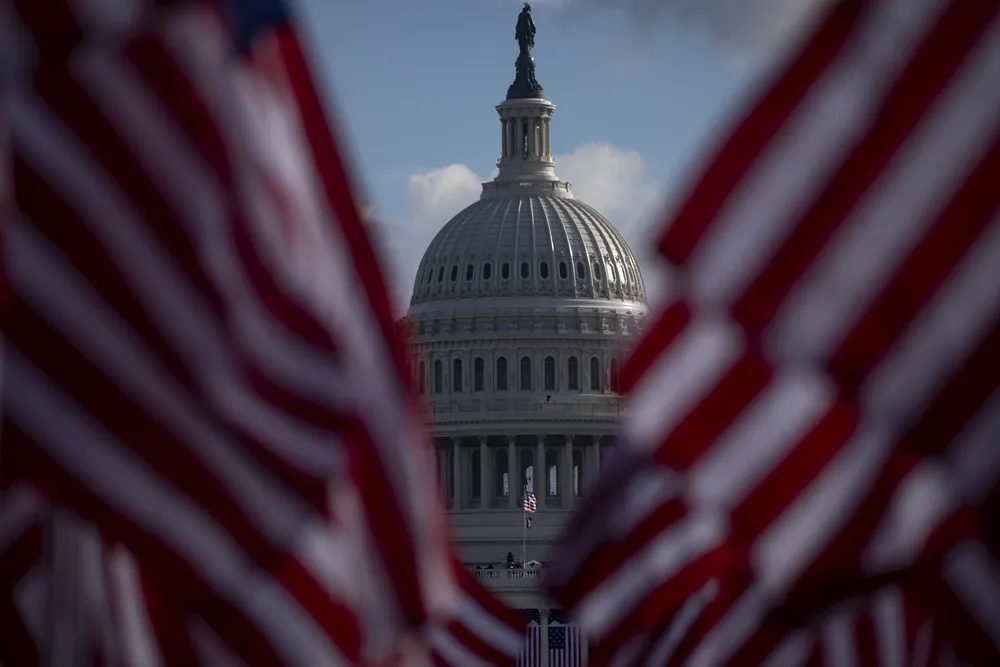Despite being the most sought-after country for immigrants, the United States remains one of the hardest countries to immigrate to for citizens around the world.

For most immigrants, the United States is a dream — a perfect world, free of strife, political violence, religious intolerance, and more. Many would sell an arm and leg to be able to get a chance at American citizenship — in fact, many sell millions worth in property holdings, assets, etc. to be able to come to the United States.
Many immigrants, from across the globe, attempt to make the extremely dangerous trek through Mexico to cross the U.S. southern border. In this process, they endure extreme weather conditions, malnourishment, rape, death, and more.
The United Nations has labeled the crossing between the U.S. and Mexico as “the deadliest land crossing in the world.” In 2021, U.S. Customs and Border Patrol reported over 1,200 deaths along the U.S. border.
Immigrants who come to America through legal avenues have to wait decades in grueling immigration queues whilst hoping that they’ll gain permanent residency before their visa expires and they’re sent back to their home countries.

So if the journey is so long, expensive, and unreliable — why do immigrants risk their livelihoods, and sometimes even their lives to come to the U.S.?
Reasons for immigration vary — some people come to the U.S. for better job opportunities, to escape poverty, and pay off their debts. Others immigrate to avoid political violence, religious persecution, and seek asylum within American borders.
In general, most immigrants hope for a better quality of life in the United States. For them, the American dream is a salve on deep political and social wounds.
Who could ever hate a country like the United States?
It seems, however, that nobody hates America more than Americans themselves — especially its younger generations. A poll conducted by Morning Consult, a research and intelligence organization, showed that only 16% of Americans in Gen-Z take pride in being American.
The idolization of Nordic countries
For Americans, it seems that the U.S. falls short in most aspects. As the media continues to idolize Nordic countries as picturesque havens of equity, Americans feel that their government should imitate more social-democratic countries like Sweden, Finland, Denmark, etc.

Some American politicians like a former presidential candidate, Bernie Sanders, even encourage Americans to indulge in a Swedish system containing universal healthcare, generous unemployment protections, and indulgent parental leave policies.
Unfortunately, Sanders’ utopian daydreams wouldn’t actually sustain in the United States. The misconception that citizens of Nordic countries live lavishly can be easily disproven: data from the Pew Research Center confirms that the U.S. G.D.P. per capita is approximately 20% higher than in Denmark, Finland, Iceland, and Sweden.
On average, according to the American Tax Foundation, Americans pay 13.6% of their income in taxes, whereas all Nordic countries have standard income tax rates ranging from approximately 48% to 57%. Thus, Americans, on average, earn more than their Nordic counterparts and get to keep more of their money.

Long-term unemployment in Nordic countries remains at a static high, especially in Sweden, where more than half of those unemployed are immigrants. In 2021, Swedish Minister of Finance Magdalena Andersson urged the Swedish government to turn back its progressive immigration policies in light of record-breaking increases in crime rates, gun violence, and organized crime groups.
While Nordic countries may be inviting prospects for tourists wanting romantic getaways, adventurous slopes, and quintessential dining — the reality is that these countries aren’t really all sunshine and rainbows. Immigrants, people of color, and workers often fare better in the United States due to less discriminatory labor policies.
Diversity, Freedom, Opportunity
Because of its long history of immigration, the United States is one of the most culturally, ethnically, and racially diverse countries in the world. With the integration of various groups from across the world, the United States has some of the world’s most cosmopolitan cities such as Los Angeles, Miami, Chicago, and New York City.

Despite recent outrage against gender inequality in the United States, according to the Organisation for Economic Co-operation and Development (O.E.C.D.) data, the United States has a gender wage gap of 16.4% which is equal to that of Canada, and only a percent higher than that of Germany, the U.K., France, and Finland. However, it is over 7% lower than that of Japan, the Koreas, and Israel.
Furthermore, while the U.S. has a smaller middle class than most of Western Europe, its median income remains higher.
Americans enjoy copious civil liberties as exemplified by the American Bill of Rights. Freedom of speech, religious liberty, and press rights are foreign concepts for various countries in the world, including nations in Asia, Africa, and even Europe.
Furthermore, according to a report by U.S. News and World Report, the United States is the second best country for entrepreneurship, first for business and innovation, and scored fourth in overall quality of life. With a G.D.P. of over $21 trillion, the United States is socially diverse and economically flourishing.
America is a country in which opportunities are endless. While problems like racism, sexism, and social inequalities continue to exist in the U.S. — and by extension, the rest of the world — it remains one of the most advanced countries in the world. In terms of economic growth and stability, job opportunities, diversity, and political freedom — being a citizen of the United States is not a privilege afforded to many.
Why do Americans hate America

There’s no single factor that amounts to the reason that Americans have started despising their own country. Nevertheless, a combination of apathy and lack of gratefulness seems to point in a certain direction.
Progressive Americans often jump to point to others’ privileges: white privilege, Asian privilege, heterosexual privilege, male privilege, etc. Perhaps they’ve collectively omitted the greatest privilege of all: American privilege.
In a detailed report published by the Council of Foreign Affairs, Americans know less about foreign policy and international news than they ever did before. According to the survey conducted within the report, under half of the American adults surveyed could identify Iraq on a map, even though over 100,000 American soldiers were present in the country just a decade ago.
Americans, especially among younger generations, are quick to “fight against disinformation” and “spread awareness” whilst not understanding the nuances of policies and events on their own.
The report identified that a majority of Americans get their news from social media and television productions. Put in other words, a majority of Americans get all their current affairs information from a colorful square on their Instagram feed created by biased, partisan users.

It’s impossible to understand the nuances of domestic and international issues from an infographic, but when social media users see a post about a humanitarian crisis on the other side of the globe — their savior complex is instantly awakened. So they nobly click the retweet button from the comfort of their couch. What would the world do without them?
Apart from the few words that they read on the Instagram post, Americans don’t really understand the extent of struggle that exists beyond their comfortable bubble.
Thus, when the only struggle one knows is their own — it becomes very easy to criticize their circumstances.
America is, by no means, a perfect nation. There is no perfect form of governance, no perfect policy, no perfect world. Yet, Americans continuously jump on the hate train — hating their country, hating their government, hating each other. It seems that liking America is a controversial opinion to have.
Today, Americans don’t realize just how comfortable their lives have become, just how much privilege they have.
What is the solution?

Primarily, education. Americans should not be relying on infographics to give them information on current affairs. Americans need to invest in a more nuanced education that teaches students about civics, geography, and international affairs.
Secondly, as social media activists always say, “Check your privilege.” If you find yourself writing paragraphs of angry tweets from the comfort of your plush chaise lounge, you should ask yourself the following questions:
- Where did I get my information from?
- Have I read (and understood) various perspectives on the topic?
- Is my negative view on this topic justified or am I just hangry?
If you’re just hangry, step away from Twitter for a second and grab yourself a snack. Chocolate is always a good solution!
In all seriousness, however, Americans need to start understanding that while it’s okay to be critical of the government, it is also vital to appreciate the privileges that come with being American. In the process of hating everything about their nation, Americans have forgotten to be grateful for being able to live the lives that a majority of the world would literally die to have.



